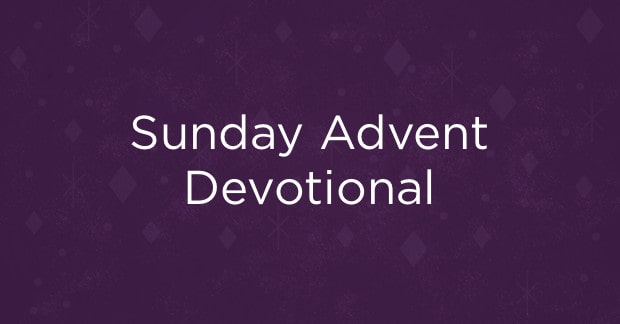I am an inveterate reader, and since I was five years old that has included fantasy and science-fiction. The idea of mixing science with fantasy, of letting my imagination fly in terms of the universe God created and what may be included in it, has always sent my pulse racing. Since I discovered it as a teenager, I have read Tolkien’s Lord of the Rings trilogy every five years. One time I read the entire set in five days—I basically didn’t sleep nearly the entire time. Yes, it is also my favorite movie as well.
All of this is to say why I love the book of Revelation so much. Everything that makes Tolkien or Asimov or David Weber fascinating is found in that wondrous biblical book. However, I didn’t always love it as much as I do now. I grew up within the prophecy movement and remember well all the conferences with their 30-foot multicolor charts at the front of the churches. My problem was the endless speculation, the rumors about the latest current event that fulfilled another of the prophecies. The difficulty was that every 10–15 years the details would change—one time a bunch of books were written suggesting the similarities between the prophecies and the European Commonwealth, another time several books were written on the Gulf War crisis. None of them ever proved true.
How I came to love this beautiful, fascinating book
I became excited about the book of Revelation only a few years after I was asked to teach it by my department at Trinity Evangelical Divinity School. I didn’t really want to do it, but it had not been taught in many years and needed to be, so I said yes. But when I started studying it deeply so I could teach, I became more and more fascinated with it. It quickly became one of my favorite courses. Several years later I agreed to write a commentary on it and took five years to do so. Then I literally fell in love with the book and began to teach it all over the world. Today it is just about my favorite book in the Bible (with Mark, John, and Ephesians), and when I started a commentary series on the New Testament, that was the first book I did.
Most of us are pretty confused by the book. We almost picture it with ork-like demons, many-headed monsters, and all kinds of weird plot lines we simply can’t figure out. However, once you catch a few key aspects, it makes a great deal of sense. Compared with other commentaries I have written, it is not the most difficult. Romans is much more complex in terms of its theology, with nearly every verse fought over by whole denominations. The Gospels are more difficult in terms of history, with all non-evangelicals doubting their historical veracity and demanding immensely complex arguments to support the accuracy of events like the incarnation, the miracles, the transfiguration, or the resurrection. The Book of Revelation is actually fairly easy to understand once you realize how it all fits together. The key is to discover the background behind it. Every difficult image in the book can be uncovered with the historical and religious ideas from John’s day that lay behind them. What I want to do now is tell you what it is all about and how to understand its incredible message.
Here are four keys to developing a love for the book of Revelation:
Revelation is a very specific kind of literature
What kind of literature is it? It is called “apocalyptic,” and that means it is a revelation from God in which he reveals his divine secrets via a series of visions about a new reality that has come with Christ. This new reality reveals the true heavenly world that takes precedence over the temporary earthly realm we inhabit in this world. The purpose is to assure God’s people that he is completely sovereign over this realm, and the present crisis and seeming rule of evil is an illusion soon to disappear. Evil will never triumph, and those who put their trust in God will be the final victors when this wicked world ends for all eternity.
It’s about much more than “the future”
Most of us think the book is concerned only with the future, with the end of the world. In actuality, it deals as much with the present as with the future. It is about the war between good and evil, between the satanic powers and the people of God. The primary theme is about the absolute sovereignty of God, about Lord God Almighty (nine times), a title that means God is exercising his omnipotent control over this world and shows himself to be Lord of all. Satan throughout the book is virtually a futile figure. He “knows his time is short” (12:12), and every action he takes is a mere imitation of what God has done. The dragon, beast, and false prophet (16:13) are a false Trinity. The mark of the beast (13:16) is a satanic imitation of the sealing of the saints (7:3). Satan demands worship (13:4, 8) and tries to be king of kings (16:14). He knows God has done everything perfectly and can only copy that perfect work.
He is “the god of this world” (2 Cor 4:4, ESV) but is merely the god of this world, and in reality he was thrown down to this world when he lost in his rebellion in primordial times (Rev 12:7-9). This world is his prison house (2 Pet 2:4; Jude 6). The battle was won for all time on the cross, and we have authority over the demonic forces (Mark 3:15; 6:7). So the book of Revelation records the prophecies regarding our present and future victories in the ultimate World War, and we cannot lose. If we depend entirely on Christ, there will always be “a way to escape” (1 Cor 10:13).
There’s disagreement about interpreting the timeline of Revelation
It is debated whether the book is describing the present conflict that will lead up to the return of Christ (the amillennial camp) or the current conflict leading up to a climactic battle at the end of history against the Anti-Christ (the “beast” of chapters 13-19, the pre-millennial camp). I belong to the latter position, based on 2 Thessalonians 2:1-12 and 1 John 2:18; 4:3, all of which I believe prophesy the appearance of a person at the end of history. For Revelation this means God is allowing evil to grow and perhaps soon will allow it to be personified in a demonic figure known as the Anti-Christ who will present himself as the final Caesar, both god and king of the world. But only Jesus is “King of kings and Lord of lords” (1:5; 19:16), and Satan’s doom is certain.
The narrative ultimately reveals God’s immense mercy
This book is not just a set of prophecies but is also a story with a plot and narrative flow. It is a fun read but a very serious one. The three sections are 1–5 (dealing with John’s day and calling the churches to persevere), 6–16 (the judgments that will end world history and calling the nations to repent), and 17–22 (the end of history and beginning of eternity, calling God’s people to hope).
The core of the story centers on the three seven-fold judgments—the seal, trumpet, and bowl judgments of chapters 6–16. These are misunderstood, for they are not about an angry, petulant God getting even with people he doesn’t like but rather a holy God judging evil humanity but at the same time giving them a final chance to repent. These judgments reenact the plagues of Egypt and have the same purpose—disproving the earthly gods (demonic forces) and proving that God alone is in charge. There is a progressive intensity of the judgments from a fourth to a third to complete devastation in order to wake the nations up and call them to “repent” while there is time (9:20, 21; 16:9, 11). God’s judgments are redemptive and not just punitive.
Closing thoughts
The final encouragement to all of you who see this blog post: read, enjoy, and be comforted! This book was inspired to comfort all faithful followers, challenge the weak Christians among them, and warn the unbelievers, with the hope of greater faithfulness for the first group, revival for the second group, and conversion for the third group.

***
Related articles
- Want to Preach on Racial Reconciliation? Start in Revelation
- Consistent Inconsistency in the Book of Revelation
- End Times Prophecy and Why There Is So Much Disagreement






